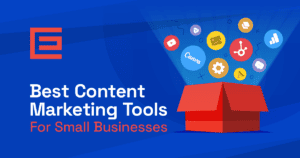E-E-A-T stands for Experience, Expertise, Authoritativeness, and Trustworthiness. This acronym represents a set of criteria that Google uses to evaluate the quality of content on the web. The recent addition of the first ‘E’ for Experience has further refined the framework, emphasizing the value of personal expertise and hands-on knowledge in content creation.
The importance of E-E-A-T in Google’s algorithm cannot be overstated. It serves as a guiding principle for Google’s Quality Raters—a group of human evaluators who manually review web pages and provide feedback on their quality. These ratings don’t directly impact rankings but are used to improve the accuracy of Google’s algorithm. By focusing on E-E-A-T, Google aims to ensure that high-ranking content is not only accurate and informative but also created by authors with a demonstrable depth of knowledge in their respective fields. This focus helps to sift through the vast amount of information available online, prioritizing content that is most likely to be beneficial to users.
For websites and content creators, understanding and optimizing for E-E-A-T is crucial. It means that producing high-quality content is no longer just about keyword optimization and backlinks—it’s about building a reputation for providing valuable, trustworthy information based on real-world experience and recognized expertise. In practice, this translates to a more user-centric approach to SEO, where the credentials of content creators, the factual accuracy of information, and the overall reliability of the website are pivotal to achieving visibility in Google’s search results. As Google’s algorithms become more sophisticated, the weight of E-E-A-T in determining search rankings is only expected to increase, making it an essential aspect of any robust SEO strategy.
The Evolution of E-E-A-T
The concept of E-A-T first emerged in Google’s Search Quality Rater Guidelines in 2014, marking a significant shift in the search engine’s approach to assessing page quality. E-A-T, which stands for Expertise, Authoritativeness, and Trustworthiness, was introduced as a benchmark for quality raters to evaluate the credibility of content creators and the content itself. Initially, the focus was on identifying content that was created by knowledgeable and reputable authors, particularly in ‘Your Money or Your Life’ (YMYL) topics—areas that could significantly impact a person’s health, financial stability, or safety.
As the digital landscape continued to grow in complexity and content saturation, Google sought to refine its quality assessment tools to better serve user needs. This led to the introduction of the additional ‘E’ for Experience in late 2022, expanding the E-A-T acronym to E-E-A-T. The added ‘Experience’ component emphasizes the importance of having firsthand or life experience in the subject matter. This change acknowledges that expertise is not solely academic or professional but can also come from practical, personal involvement in a topic, providing a unique and authentic perspective that enriches the content’s value.
Google’s Search Quality Rater Guidelines were updated to incorporate this new dimension, providing clearer guidance on how raters should evaluate the application of experience in content. The update signaled to webmasters and SEO professionals that Google was placing a premium on content enriched by personal experience, potentially affecting how pages are perceived and ranked. This shift also highlighted the search engine’s ongoing commitment to delivering search results that not only answer queries with authority and reliability but also with insights drawn from real-world experiences.
The evolution of E-E-A-T reflects Google’s adaptive measures to the nuances of online information and its creators. It underscores the tech giant’s dedication to promoting content that is not just informative but also genuinely helpful and grounded in reality. For content creators, this evolution means that the bar for quality content is set higher, requiring a blend of verifiable knowledge and tangible experience to meet the sophisticated demands of modern search algorithms.
Components of E-E-A-T
The components of E-E-A-T form the backbone of content evaluation for Google’s search algorithm, each playing a distinct role in determining the perceived value and reliability of a webpage. Understanding these components is essential for content creators and SEO professionals who aim to align their content with Google’s quality standards.
Experience
Experience in the context of E-E-A-T refers to the practical knowledge that comes from direct involvement in a field or activity. It’s the firsthand insight gained from doing, rather than just studying or discussing. For instance, a chef writing about cooking techniques brings valuable experience to the content, as does a patient sharing their journey through a health condition. Demonstrating experience can involve sharing personal stories, case studies, or practical tips that only come from having been actively engaged in the subject matter. A blog post by a seasoned traveler with personal anecdotes and advice on navigating a particular country is an example of content enriched with experience.
Expertise
Expertise is the component that reflects the depth of knowledge one has in a particular area. It is often validated by formal qualifications, such as degrees or certifications, but it also encompasses practical knowledge acquired through professional practice. For example, a financial advisor with a certification in financial planning writing about investment strategies showcases expertise. Similarly, a self-taught programmer who has developed several successful apps may be considered an expert based on their practical knowledge and contributions to the field.
Authoritativeness
Authoritativeness is about the strength of the reputation a person or site has within a particular domain. It is built over time through consistent publication of accurate and respected work, recognition by peers, and citations from authoritative sources. Building a reputation within a field often involves networking, speaking at industry conferences, and getting published in reputable journals or online platforms. A medical professional who is frequently quoted by medical journals or news outlets on health issues would be seen as having high authoritativeness.
Trustworthiness
Trustworthiness relates to the credibility and reliability of the content and the website on which it appears. It involves not only the truthfulness and accuracy of the information presented but also the transparency about the author’s credentials and the presence of clear, factual support for the content. Ensuring content accuracy includes rigorous fact-checking, citing reputable sources, and updating content as new information becomes available. Site security is also a factor in trustworthiness, as secure sites (indicated by HTTPS protocols) protect users from fraud and privacy breaches, thus enhancing the trust users have in the site.
Together, these four components—enhanced by the recent emphasis on experience—create a comprehensive framework for assessing content quality. By excelling in each area, content creators can significantly improve their chances of being recognized as a high-quality source by Google’s algorithms, leading to better search visibility and more trust from users.
E-E-A-T and YMYL Topics
Understanding YMYL (Your Money or Your Life)
YMYL stands for “Your Money or Your Life,” a term used by Google to describe topics that could have a significant impact on a person’s health, financial stability, or safety. This category includes a wide range of content, from financial advice and medical information to legal issues and news articles on critical events. The common thread among YMYL topics is their potential to affect the well-being of individuals if the information is misleading or inaccurate. Therefore, Google holds YMYL content to the highest standards, as the stakes for trustworthiness and accuracy are particularly high.
The Relationship Between E-E-A-T and YMYL Pages
The introduction of E-E-A-T has deepened the scrutiny under which YMYL pages are evaluated. Since these pages can influence major life decisions, Google uses E-E-A-T as a lens to ensure that they come from the most reliable and authoritative sources. The ‘Experience’ and ‘Expertise’ components are critical here, as they help to filter out content that may be well-intentioned but not grounded in professional knowledge or personal experience relevant to the topic. Authoritativeness and Trustworthiness are equally important, as they assure users that the source is recognized and the information is current and secure.
For YMYL content, demonstrating high E-E-A-T is essential for gaining visibility and trust in search results. This means that authors and publishers must not only present information that is accurate and up-to-date but also back it up with transparent expertise and authoritative credentials.
Examples of YMYL Page Assessments
A health website that provides advice on managing chronic diseases would be evaluated based on the medical qualifications of its authors, the accuracy of its content against current medical consensus, and the security of the site to protect users’ privacy. Similarly, a financial advisory site would need to demonstrate the financial expertise of its contributors, provide evidence of their authority in the finance community, and ensure that advice is consistent with current economic standards and practices.
Let’s imagine a legal advice website. Such a site would be assessed on the legal experience of its authors, their standing in the legal community, and the site’s commitment to providing up-to-date legal guidance. In all these cases, the presence of clear author biographies, up-to-date references, and secure browsing protocols would be crucial for a positive assessment.
By keeping these examples in mind, content creators can better understand the specific actions they need to take to improve their E-E-A-T ratings on YMYL topics, thereby enhancing their site’s reputation and search engine performance.
Optimizing for E-E-A-T
In the quest to rank well on Google, optimizing for E-E-A-T is a critical strategy for content creators and website owners. Here’s how to enhance the Experience, Expertise, Authoritativeness, and Trustworthiness of your content and site.
Content Creation Strategies
To optimize for E-E-A-T, start with a content strategy that prioritizes depth and value. Create comprehensive, in-depth content that covers topics from multiple angles and provides actionable insights. Use a variety of content forms, such as how-to guides, tutorials, and case studies, to cater to different learning styles and search intents. Ensure that all content reflects current industry practices and knowledge, and update it regularly to keep pace with new developments. Incorporating elements of personal experience, where relevant, can also add a layer of authenticity and engagement that pure factual reporting may lack.
Establishing Author Credentials
Highlighting the expertise of content creators is vital in establishing E-E-A-T. This can be done by including detailed author bios with information about their qualifications, professional experience, and achievements. For websites with multiple contributors, creating an ‘About Us’ or ‘Contributors’ page that showcases the collective expertise can be beneficial. Encouraging authors to maintain an active professional presence on social media and industry forums can also contribute to their authoritativeness and the overall perception of expertise.
Building a Trustworthy Site Infrastructure
A trustworthy site infrastructure is foundational to E-E-A-T. This includes implementing technical security measures such as SSL certificates to ensure a secure connection and protect user data. A clear and accessible privacy policy, terms of service, and contact information add layers of trust. User experience is also a part of trustworthiness; a clean, professional design, fast loading times, and mobile responsiveness all signal to users and search engines that a site is reliable and cares about its visitors.
External Linking and Citations
External links and citations are the backbone of a well-researched piece of content. Linking to authoritative sources not only supports the accuracy of your content but also shows that you are part of the broader conversation within your field. When citing sources, choose those with high E-E-A-T themselves, such as academic journals, respected industry publications, and expert interviews. Additionally, receiving external links from such sources can bolster your own site’s E-E-A-T, as it is seen as an endorsement of your content’s quality.
By focusing on these areas, you can signal to Google that your content and site are trustworthy sources that deserve to rank well. Optimizing for E-E-A-T is not a one-time task but an ongoing process that aligns with producing high-quality content and providing a safe, user-friendly web experience.
Challenges and Misconceptions
The implementation of E-E-A-T as a benchmark for content quality has not been without its challenges and misconceptions. Understanding these is crucial for SEO practitioners and content creators to effectively navigate and optimize for Google’s quality standards.
Common Misunderstandings about E-E-A-T
One common misunderstanding about E-E-A-T is the belief that it is a single, quantifiable metric that Google uses to rank pages. In reality, E-E-A-T is a set of principles that guide Google’s Quality Raters and inform the algorithm’s development. There is no specific ‘E-E-A-T score’ that a page receives. Instead, various signals that reflect these principles are integrated into Google’s complex ranking algorithms to assess content quality.
Another misconception is that E-E-A-T is only important for YMYL sites. While it’s true that E-E-A-T is critical for these high-stakes areas, these principles apply to all content on the web. Google aims to provide users with the best possible results for all queries, which means that E-E-A-T considerations can influence rankings across a wide array of topics.
Additionally, some assume that authoritativeness and trustworthiness are solely about the content itself, overlooking the importance of the website’s technical and user experience aspects. However, site security, design, and functionality all play a role in establishing trust with users and, by extension, with Google’s algorithms.
The Debate on E-E-A-T as a Ranking Factor
There is ongoing debate within the SEO community about the role of E-E-A-T as a direct ranking factor. Some argue that because Google has not explicitly labeled E-E-A-T as a ranking factor, it should not be a primary focus of SEO strategies. Others contend that even if E-E-A-T is not a direct ranking factor, it indirectly influences rankings through its impact on user experience and content value, which are known ranking considerations.
Google has indicated that while E-E-A-T is not a direct ranking factor, it is used to inform the algorithm’s understanding of content quality. This means that while there may not be a direct line from E-E-A-T to rankings, the principles of E-E-A-T are embedded in the factors that Google’s algorithm considers when determining the relevance and quality of a page.
The challenge for SEO professionals is to balance the qualitative aspects of E-E-A-T with the quantitative aspects of traditional SEO. This involves not only optimizing technical SEO elements but also ensuring that content is created and presented in a way that aligns with E-E-A-T principles. As Google’s algorithms continue to evolve, the influence of E-E-A-T on search rankings is likely to grow, making it an increasingly important consideration for anyone looking to succeed in the digital space.
How Google’s Quality Raters Evaluate E-E-A-T
Google’s Search Quality Rater Guidelines provide a detailed explanation of how E-E-A-T is evaluated. The guidelines outline the criteria for low, high, and very high E-E-A-T:
- Low E-E-A-T pages are those that lack the necessary experience, expertise, authoritativeness, or trustworthiness. These pages may contain inaccurate information, lack an expert author, or be hosted on a dubious website.
- High E-E-A-T pages are those that demonstrate a high level of expertise or authority on the topic, and are considered trustworthy. These pages are created by people who have appropriate experience or qualifications in the topic.
- Very high E-E-A-T pages are the cream of the crop. They are the most authoritative, trustworthy, and experienced sources on the internet for their particular topic.
Understanding and implementing E-E-A-T is crucial for anyone looking to improve their SEO and create high-quality content that resonates with both users and Google’s algorithms.
E-E-A-T and AI-Generated Content
AI-generated content presents challenges in meeting the quality threshold for experience. Since AI lacks personal experiences, it can’t provide the firsthand knowledge that Google values in E-E-A-T. Google’s stance on AI-generated content is that it should be reviewed by a human editor before publication to ensure it meets its guidelines.
The Future of E-E-A-T
As the digital landscape continues to evolve, so too will the factors that influence search engine rankings and SEO best practices. The future of E-E-A-T is likely to be characterized by even greater emphasis on content quality and the authenticity of creators, with potential updates shaping the way content is evaluated and ranked.
Predictions for E-E-A-T’s Role in Future Updates
Looking ahead, we can anticipate that E-E-A-T will become increasingly integral to Google’s algorithm updates. As machine learning and artificial intelligence become more sophisticated, Google’s ability to assess the nuances of experience, expertise, authoritativeness, and trustworthiness will likely improve. This could mean that signals related to E-E-A-T will have a more pronounced impact on search rankings. For instance, algorithms may become better at discerning the actual expertise of content creators based on their online footprint, beyond what is explicitly stated in their author bios.
Google may also refine its understanding of ‘Experience’ by evaluating user engagement metrics, such as time on page and bounce rates, to gauge whether content satisfies user intent—a proxy for the value derived from personal experience in content creation. Additionally, as misinformation continues to be a global concern, trustworthiness will remain a critical factor, with Google potentially introducing more rigorous ways to verify and rank the trustworthiness of sources.
Preparing for Changes in SEO Best Practices
To prepare for these changes, SEO professionals and website owners should focus on several key areas. First, they should invest in building the expertise and credentials of their content creators, encouraging continuous education and professional development. Second, they should document and share their real-world experiences in a way that enhances the depth and relatability of their content.
Building a robust site infrastructure that prioritizes user security and privacy will be non-negotiable, as will be the need for a transparent and ethical approach to content creation and business practices. Websites should also be prepared to adapt to new formats and types of content, such as video and interactive media, which can offer richer and more engaging ways to demonstrate expertise and experience.
Finally, staying informed about Google’s updates and the evolving landscape of SEO will be crucial. This means regularly revisiting and revising SEO strategies to align with the latest guidelines and best practices. By doing so, content creators and marketers can ensure that their efforts are not only compliant with current standards but also poised to adapt to future changes in the digital ecosystem.
In conclusion, the future of E-E-A-T is likely to see it become more deeply embedded in the fabric of SEO. By proactively enhancing the E-E-A-T aspects of their content and websites, businesses can position themselves to thrive in the face of Google’s ongoing quest to deliver the highest quality search results to its users.
Tags: Our Favorites







